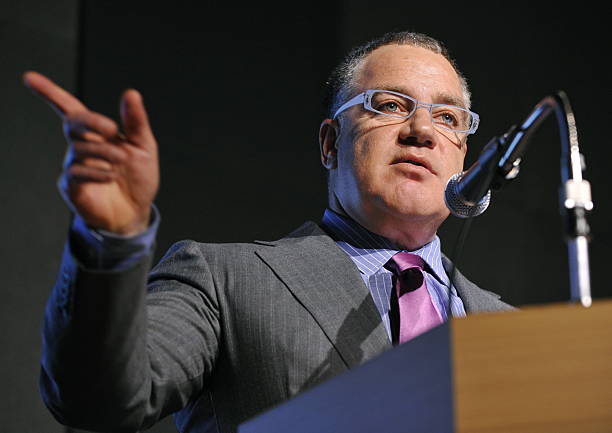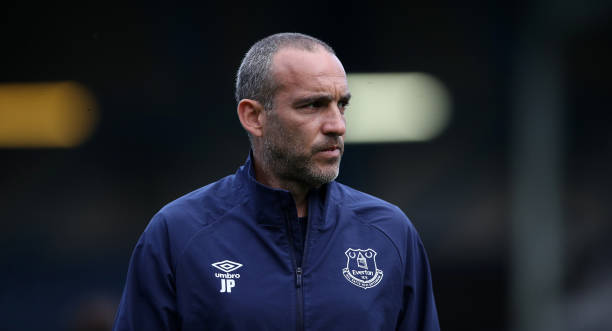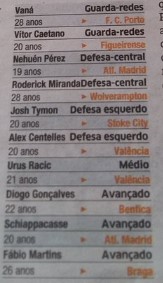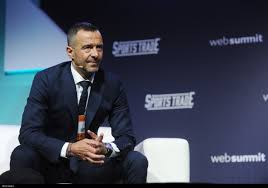
In a transfer window unlike many, a good quantity of the lesser-thought-of Primeira Liga sides were able to fetch themselves their fair share of hype with moves made during the summer.
From the coups of Mehdi Taremi and Lucas Evangelista at Rio Ave and Vitória de Guimarães, respectively, to the arrivals of former flavours of the month, such as Marlos Moreno at Portimonense and Santa Clara’s Lincoln, everything points towards a potentially more competitive Liga NOS season as plenty of teams aim to leave their imprint on proceedings.
Nobody has pushed that boat out quite like Primeira Liga newcomers Famalicão, however, landing a whopping 19 new first-team signings and translating their exciting movements into a thus far unbeaten start to the season, topping the table after five league games.
As they ready themselves to face Sporting, FC Porto and Sporting de Braga in their next set of five league games, comparisons to Leicester City and their fairytale title-winning season in 2015/16 have quickly made their way into circulation, sparking the interest in the new boy’s humble beginnings and what potential success could mean for the monopolised landscape of Portuguese football.
Claiming two second division titles to their name, time has seen Famalicão gain a reputation as a standard second-tier club, with its last run-out at the top of the Portuguese footballing pyramid coming in the early nineties, across four consecutive seasons. Upon top-flight relegation, the trap doors seemed too big to evade for the current Liga NOS sensation, sinking as low as the fourth tier, where they'd play regional football in 2008/09. The renaissance was steady and, as of 2015, ‘the Blue and Whites’ of Vila Nova de Famalicão managed to re-establish themselves as a second division club.
After a big comeback season, finishing 6th in the then newly-named LigaPro, followed by two more muted campaigns (finishing 15th & 14th), Famalicão sparked inspiration from pivotal happenings going on upstairs.
The Makeover

A not-to-dissimilar revamp to this summer's saw ‘the Famalicenses’ add a staggering 18 new names to their roster in 2018, covered in September of that year by the framework-breaking takeover of the club by the Quantum Pacific Group (QPG), fronted by Israeli businessman Idan Ofer. The initial summer spree was packaged to the fans and media as a declaration of the club’s ambitions, not only building a team hopeful of poking its head back through the last gate of Portuguese football, but also one that’s intrinsically ready to compete once they’re there.
Paços de Ferreira set the pace in the 2018/19 season, but promotion still looked firmly on the cards throughout the campaign after trailing ‘the Castores,’ closely followed by Estoril. As a result, a run of three winless games in mid-March sparked swift change in command of the club, with QPG replacing Sérgio Vieira with ex-Santa Clara and Académica boss Carlos Pinto in a bid to firm up the second-placed outfit’s promotion hopes, just eight games from the end of the season.
The gamble worked, claiming seven more victories en route to promotion, but there was yet more change on the new ownership’s agenda as they prepared for life in the Primeira Liga. Pinto failed to earn himself a contract extension, giving way to João Pedro Sousa, former assistant manager of Everton’s Marco Silva, as the new boss of Famalicão in his first stint as manager.

Long gone were the days of trusting the current crop of players to take their promotion-winning understanding to new heights. A fresh summer binge that saw them land ten new loan signings (see chart on the right), the most in the entire league. Close ties to Atlético Madrid - QPG retain 32% ownership of the Spanish giants - saw the likes of the highly rated Nehuén Pérez and Nicolás Schiappacasse arrive from the Wanda Metropolitano on loan.
Wolverhampton Wanderers contributed to the newcomers’ cause with a temporary switch for Roderick Miranda, as well as a free transfer for current starting XI mainstay Pedro Gonçalves. Famalicão wasted little time in swooping for Braga pair Fábio Martins and João Neto, also taking their shopping back out to Spain by agreeing loan deals for Valencia’s Alex Centelles, Uros Racic and ex-cantera product Toni Martínez, coming in from West Ham United.
Mendes at the wheel
Benfica duo Guga and Diogo Gonçalves were added to the signings of Porto’s Vaná and even Stoke City’s Josh Tymon, having worked with Sousa in his time as Hull City assistant manager. The quality had undoubtedly been upped and, without having to think too much, the movements were largely due to the influence of one man - Jorge Mendes - notoriously known for operating within the aforementioned clubs.
The super-agent’s fingerprints have led to sporadic volumes of success, more recently in the Premier League with Wolves, and Famalicão have certainly drawn inspiration from the Midlands club in their eye-catching start to their comeback season, 25 years later.

Unbeaten in five games, claiming four victories and leading the title holders by a single point, portions of the Famalicão faithful will be feeling like they owe their transformation to the new ownership, responsible for upping the club’s wage bill to the highest outside the habitual top four. In turn, QPG have increased their grip on the club from 51% to 85%, opening space for further debate about whether more clubs should be looking to do the same.
Tradition makes takeovers a very sensitive subject within the Portuguese footballing realm, even in an era where the gulf between Europe’s richest clubs and the financial realities of the Primeira Liga are as big as they have ever been. Mere name changes to stadiums and club facilities, baby food for the likes operating in England and Germany, can be thorny.
But just how much of that could change if Famalicão continue to defy the odds and upset the natural order of the Primeira Liga?
For the smaller clubs, kept at bay by a financial and competitive creek of their own versus Benfica, Porto, Sporting and co., seeing Famalicão’s ownership model work should, in theory, encourage more teams to adopt the northern outfit's model and subsequently aim to make the division more competitive. Even those at the very top of the food chain, naturally more attractive to potential buyers, can grow tempted in the face of crippling old-age debts and difficulties to compete in Europe.
Of course, there are good, sensible owners and more irrational and unlikable chiefs out there, forming the conundrum that many fans and club members have when talking about relinquishing full control. Even those that come good, as businessman, change strategies that don’t always align with the ambitions fans feel a club should have.
In a nation with little more than 10 million people but a footballing history as rich as any, the prospect for a more prosperous and competitive division is certainly there and Famalicão could well be its gateway.
By Patrick Ribeiro

